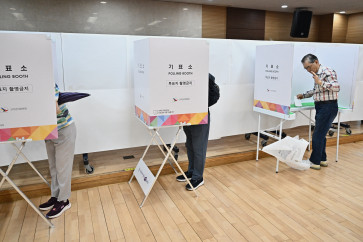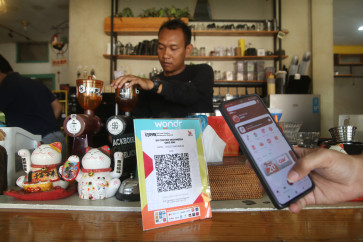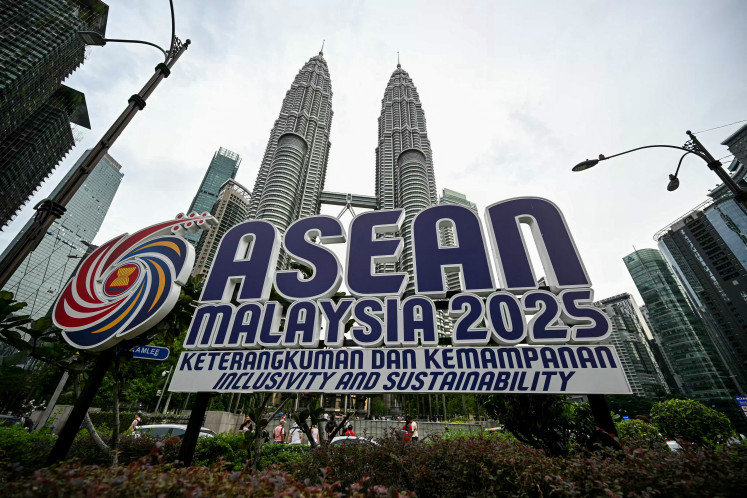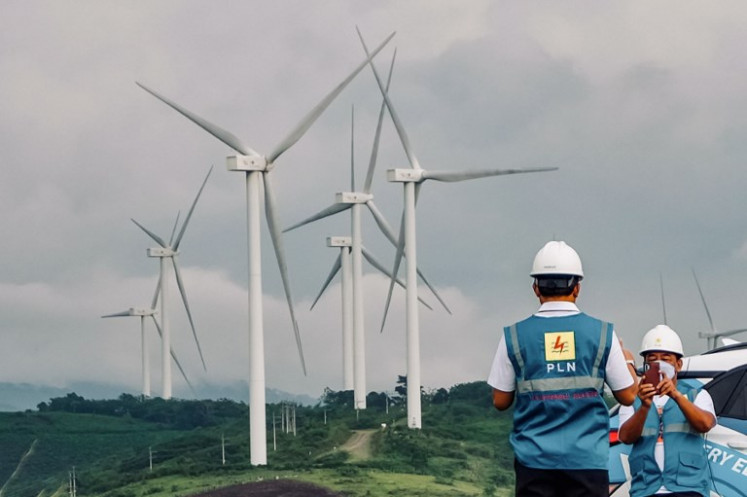Food security or disruption?
With one strike, the regulation has banned private companies from importing staple foods to build up the national supply.
Change text size
Gift Premium Articles
to Anyone
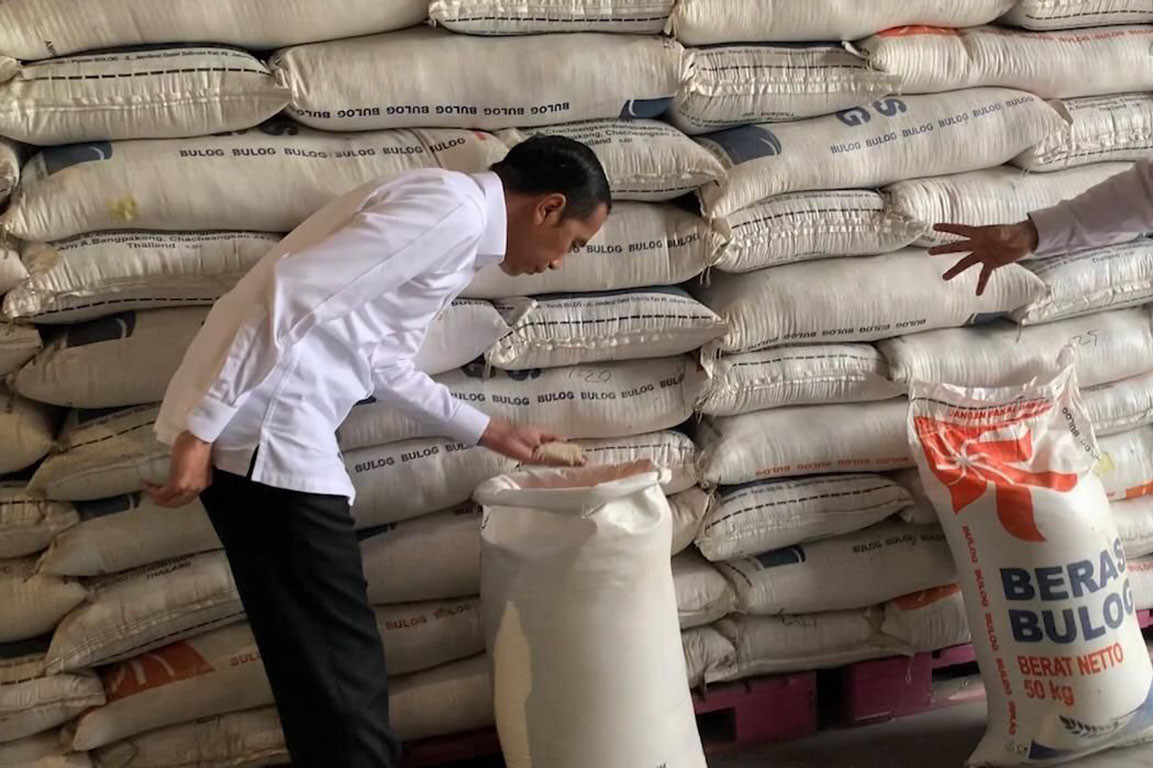 President Joko Widodo accompanied by Bulog President Director Budi Waseso inspected Bulog Warehouse in Kelapa Gading, North Jakarta on Wednesday, March 18, 2020. (JP/Documentation of the State Secretariat)
President Joko Widodo accompanied by Bulog President Director Budi Waseso inspected Bulog Warehouse in Kelapa Gading, North Jakarta on Wednesday, March 18, 2020. (JP/Documentation of the State Secretariat)
The government has finally implemented the provision in the 2012 Food Law that mandates the establishment of a National Food Agency.
The long wait does not, of course, mean that the new agency will become a good institution. The challenges that lay ahead will instead be all uphill as regards the scope of its duties and authority, as well as its effectiveness in developing food security and maintaining food price stability.
The National Food Agency, established in late July under Presidential Regulation No. 66/2021, is responsible for coordinating, formulating and implementing government policies on food availability, prices, security, diversification, safety and supply, as well as nutrition.
The agency’s authority covers nine staple foods: rice, corn, soybeans, sugar, onion and garlic, eggs, poultry and beef, and chilies. The agency is to cooperate with state-owned enterprises (SOEs) that operate in food production and food trade to manage the national food supply.
With one strike, the regulation has banned private companies from importing staple foods to build up the national supply. They are no longer able to collude with officials at the agriculture and trade ministries to obtain food import quotas. This is quite a big loss for business, especially since the 2020 Job Creation Law liberalized imports to build up the national supply and maintain stable prices for the nine food commodities.
Food commodity imports, which were needed to maintain price stability in the event of a domestic shortage, had become a lucrative business in the past two decades due to the high profit margin resulting from the much higher prices of local foods.
Now, the National Food Agency will have to rely on SOEs such as Bulog, which has been responsible for managing the rice supply so far, cattle and poultry farm PT Berdikari, and food traders PT Rajawali Nusantara and PT Perusahaan Perdagangan Indonesia, and food warehouse company PT Bhanda Ghara Reksa.
It is too early to say whether these SOEs can perform in importing foods for supply management, which requires a lot of financing. Neither is it clear who will bear the inherent losses of food supply management, especially for highly perishable commodities like chili, onion and garlic.
Yet, the most challenging and bureaucratically sensitive issue is how the agency will cooperate and coordinate with the Agriculture Ministry, which was previously responsible for determining the food import quotas, and the Trade Ministry that issued import licenses.
The agency’s head reports directly to the President, just like the agriculture and the trade ministers. In fact, the agency’s scope overlaps the directorate generals of staple foods, horticulture and livestock, all three of which have their own elaborate bureaucratic machines. It is the basic duty of these directorate generals to increase food production toward achieving food security.
Moreover, to fulfill its duty in managing the national food supply, the National Food Agency must have access to the agriculture ministry’s accurate and up-to-date data on food production. The agency also needs to be apprised of developments in the so-called supermarket revolution, which has begun to change the food supply chain, along with agritech start-ups.

